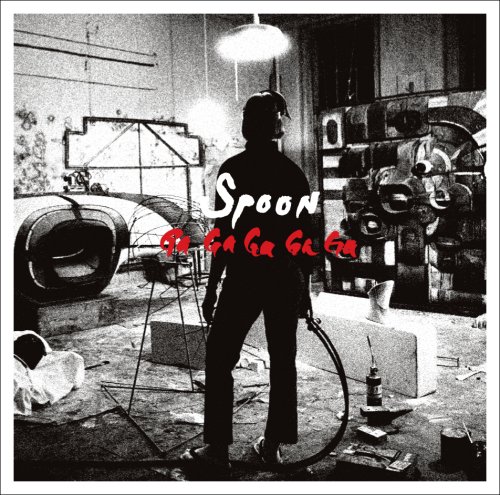
Spoon
Ga Ga Ga Ga Ga
Release Date: Jul 10, 2007
Genre(s): Indie, Rock
Record label: Merge
Music Critic Score
How the Music Critic Score works
Album Review: Ga Ga Ga Ga Ga by Spoon
Fantastic, Based on 4 Critics
Based on rating 9/10
"Attention to detail" doesn't necessarily sound like the secret ingredient to brilliant rock & roll, but in Spoon's case, it comes second only to inspiration. Britt Daniel, Jim Eno, and company keep finding ways to challenge themselves and their listeners by working within the same basic, streamlined sonic framework they crafted on Girls Can Tell, adding a few new twists here and there with each album. Ga Ga Ga Ga Ga just might be the most winning update on this approach since Girls Can Tell itself: each song is as carefully and creatively pruned as a bonsai tree, with nothing fussy or superfluous to mar the clean lines of the songwriting or arrangements.
Opinion: Fantastic
Despite the baby’s-first-words title, there’s not much that’s new on the sixth album from college radio’s favorite Austinites. Beginning with the clipped consonants and staccato feedback bursts of ”Don’t Make Me a Target,” Ga Ga Ga Ga Ga is one of those ”taking stock” records that collates and refines everything that came before. But what an inventory of sounds they’ve built: an arsenal of hand claps, Motown- lifted tambourine bursts, music-hall piano lines, and bass levels that hover in the red.
Opinion: Fantastic
Those first few chugs are as familiar as the smell of morning coffee, each one aggressive, serious. Spoon's sixth LP beams with decades of research and development by one Britt Daniel. And just like the signature sounds that came before ("Everything Hits at Once" from Girls Can Tell, Kill the Moonlight's "Small Stakes") Ga Ga Ga Ga Ga takes off with the pure essence of the now-trans-American fourpiece with "Don't Make Me a Target." The difference between GGGGG and the rest lies in the remainder of the so-short 10-song success, partly due to the best sound producer Mike "the Wizard" McCarthy has ever achieved.
Opinion: Excellent
Spoon's popularity has always amused me a little, since their music almost - almost - seems like a running gag about rock tropes. Britt Daniel's lyrics have never made sense, and his frequent exclamations of "Yeah!" and "Come on!" almost sound like parodies of the way most rock singers use those words. Behind him, the music is catchy, but it often feels like a collection of semi-functional parts - dropped beats, weirdly-placed handclaps, and clichés tilted to the wrong angle.

